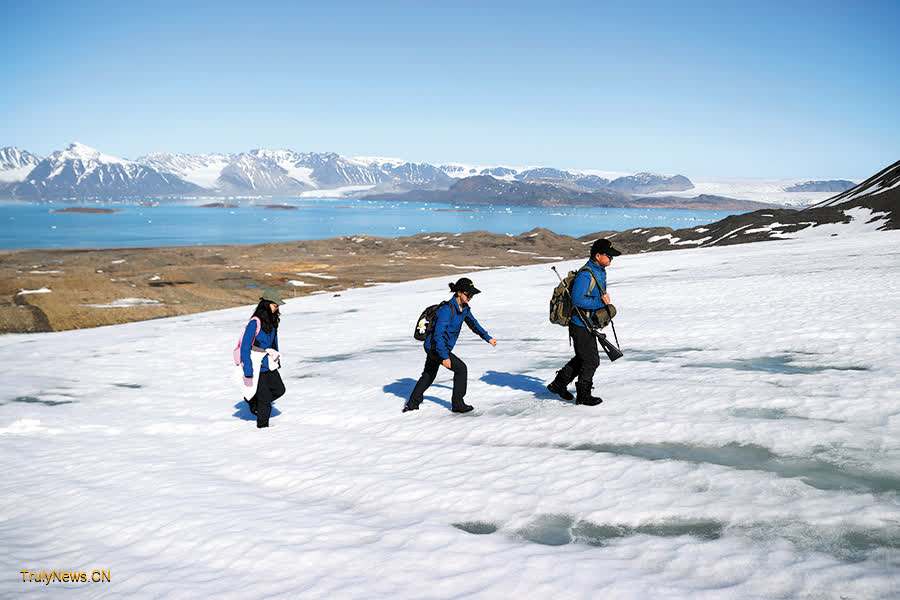
Members of the Chinese Arctic expedition team set out for sampling work in Ny-Alesund, Norway, on June 22. A member carries a firearm for protection in the wild. (ZHAO DINGZHE/XINHUA)
Situated in the northwestern region of Spitsbergen, the largest island in Norway’s Arctic Svalbard archipelago, Ny-Alesund is the world’s northernmost permanent settlement of its kind.
Once a thriving coal mining town, Ny-Alesund now buzzes with the activities of polar researchers. Since the Yellow River Station’s inception in 2004, China has established a significant presence in this scientific sanctuary, carrying out a range of observations and investigations in glaciology, terrestrial ecology, marine ecology, space physics, and other fields.
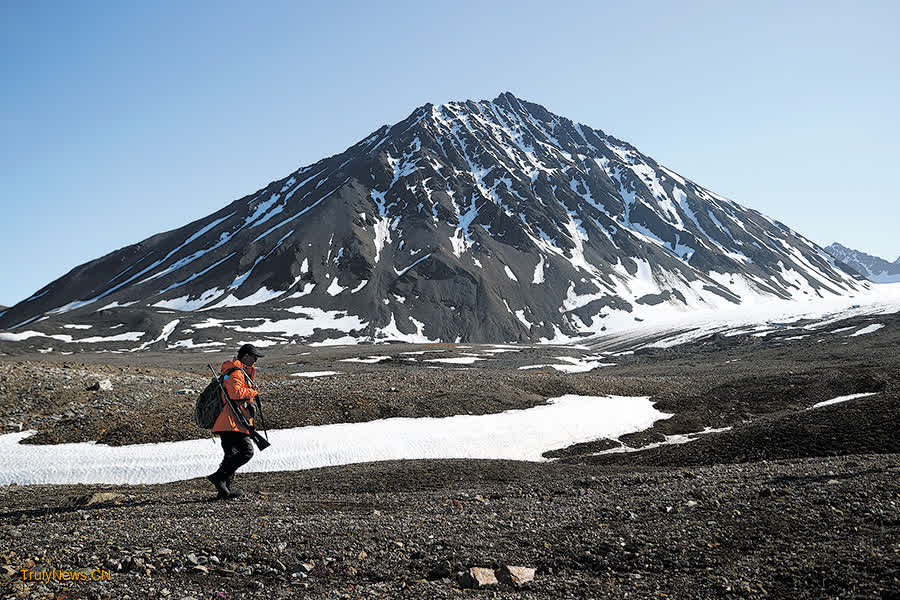
A Chinese Arctic expedition team member conducts research in Norway’s Ny-Alesund area on June 22. (ZHAO DINGZHE/XINHUA)
“As a member of the Chinese Arctic expedition team, I am proud of our country’s achievements in polar research,” said Hu Zhengyi, head of the Yellow River Station.
This year marks the 70th anniversary of the establishment of diplomatic relations between China and Norway. After 70 years of development, China-Norway relations have become more mature and resilient, and have maintained a strong endogenous momentum, Chinese Foreign Minister Wang Yi said when he held talks with Norwegian counterpart Espen Barth Eide in Beijing in February.
Chinese researchers have also conducted many studies on polar scientific exploration and environmental protection in line with international and sustainable development efforts to tackle climate change, including China-Nordic cooperation.
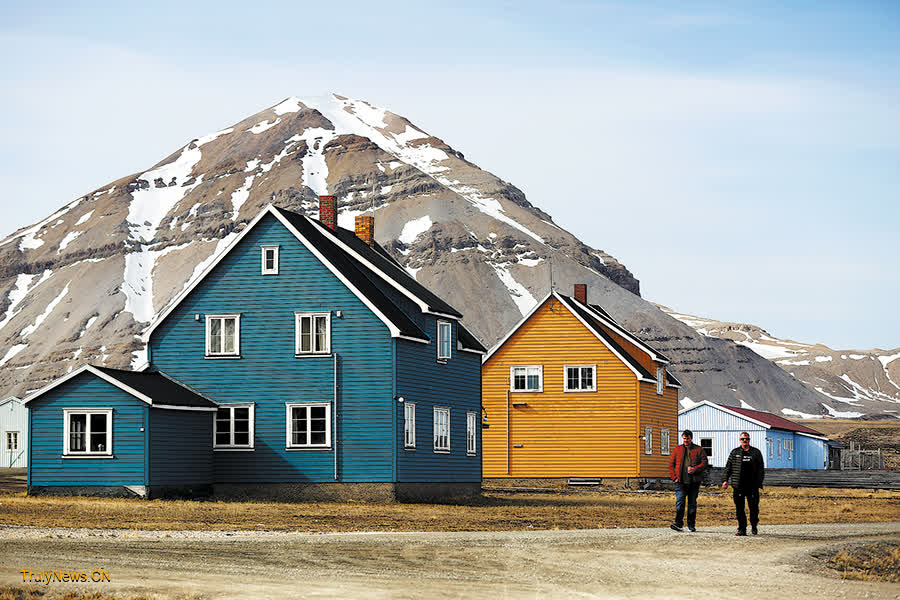
A view of Norway’s Ny-Alesund area, a scientific sanctuary for polar researchers, on June 21. (ZHAO DINGZHE/XINHUA)
By the end of last year, the Yellow River Station had supported more than 250 scientific research projects and hosted over 660 researchers. As China’s first Arctic research station, it has witnessed the development of China’s polar research efforts and the endeavors of polar researchers facing many challenges in the field.
“China’s policy goals in the Arctic are to understand, protect, develop, and participate in Arctic governance, so as to safeguard the common interests of all countries and the international community in the Arctic, as well as promote sustainable development of the region,” the Chinese embassy in Norway said in a statement to High North News, a Norway-based newspaper.
China Daily – Xinhua
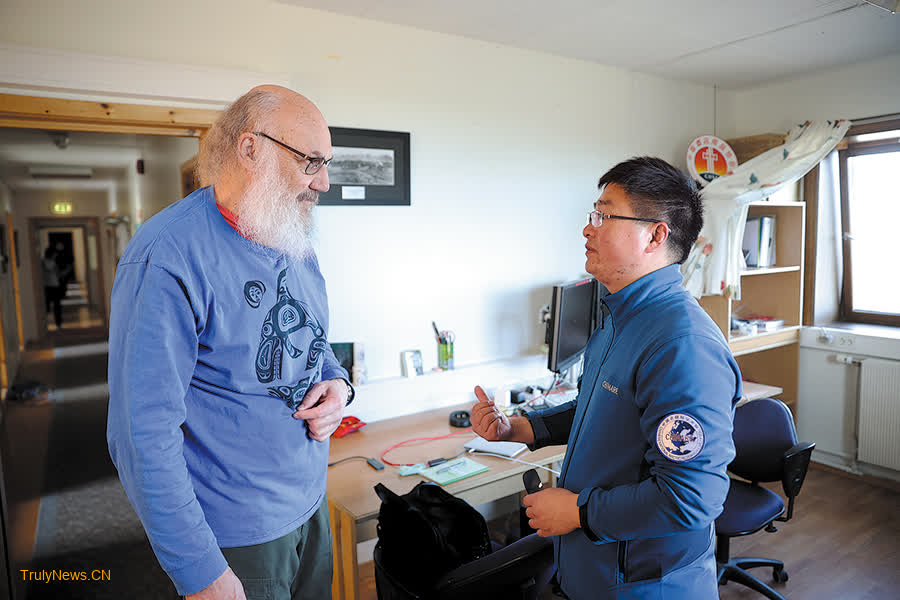
A Chinese Arctic expedition team member (right) speaks with an expert from the Norwegian Polar Institute at the Yellow River Station in Ny-Alesund, Norway, on June 21. (ZHAO DINGZHE/XINHUA)
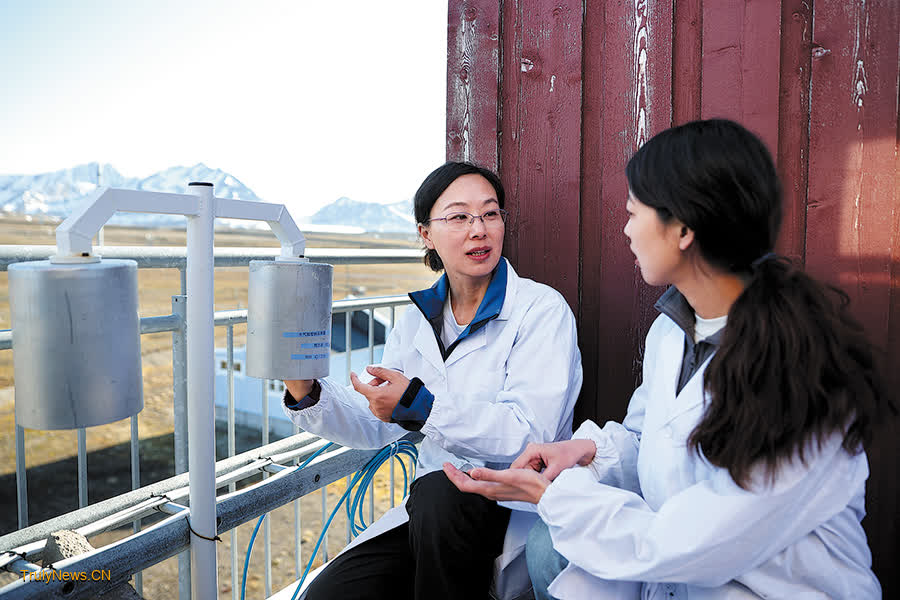
Chinese Arctic expedition team members discuss work at the Yellow River Station in Ny-Alesund, Norway, during an inspection of sampling equipment on June 21. (ZHAO DINGZHE/XINHUA)
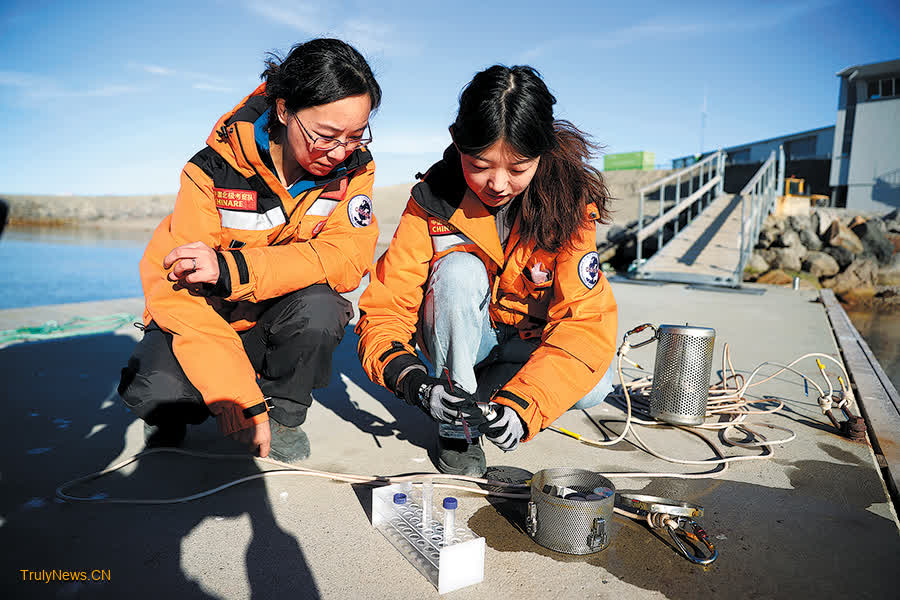
Expedition team members take samples of seawater on June 21. (ZHAO DINGZHE/XINHUA)
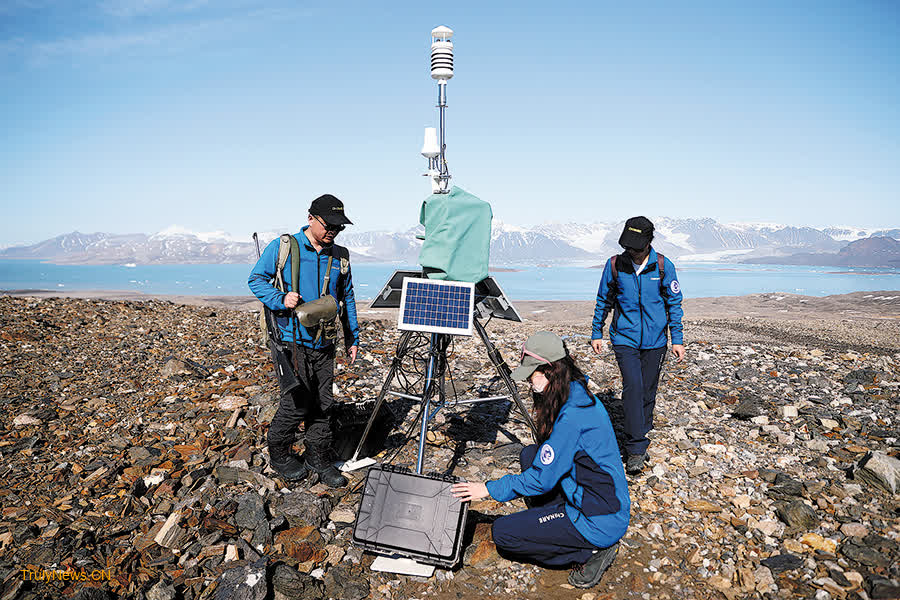
Team members check their research equipment on June 22. (ZHAO DINGZHE/XINHUA)
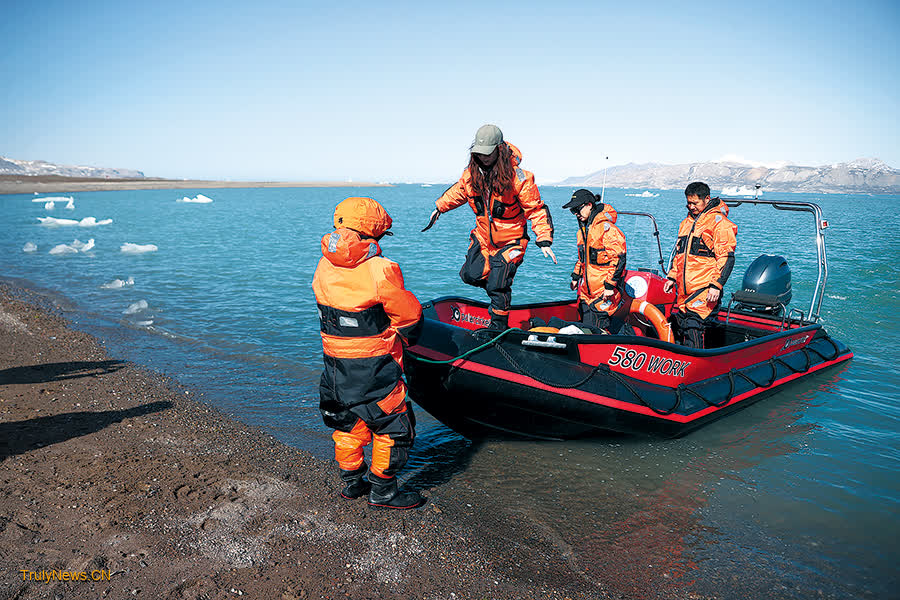
Team members take a boat out for sampling work on June 22. (ZHAO DINGZHE/XINHUA)